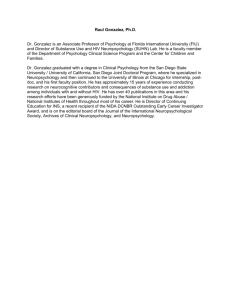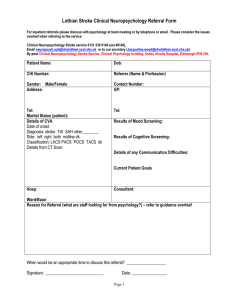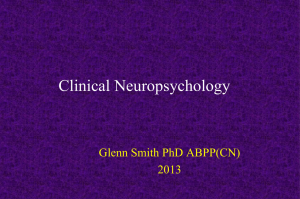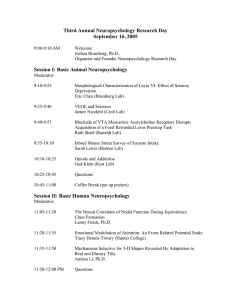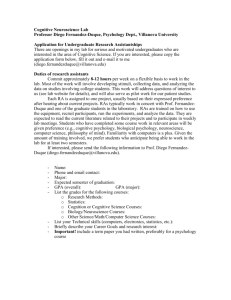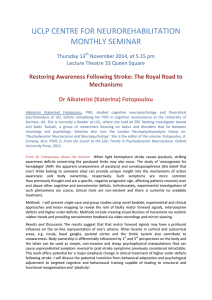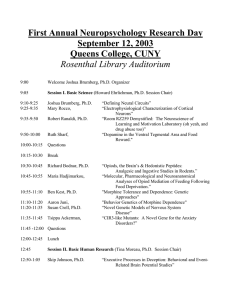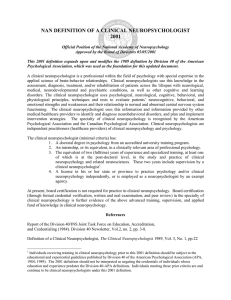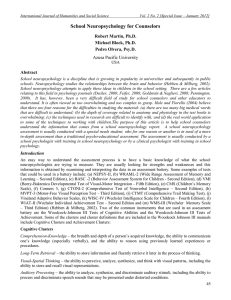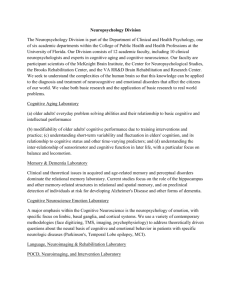Advising-statement-neuropsychology-and
advertisement
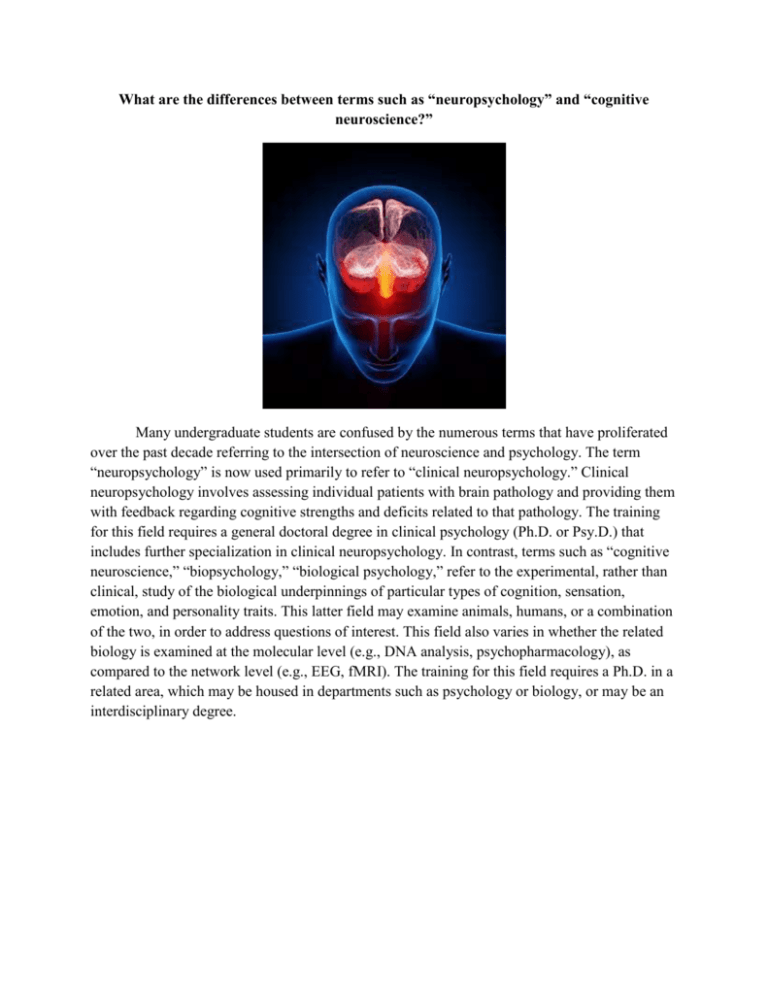
What are the differences between terms such as “neuropsychology” and “cognitive neuroscience?” Many undergraduate students are confused by the numerous terms that have proliferated over the past decade referring to the intersection of neuroscience and psychology. The term “neuropsychology” is now used primarily to refer to “clinical neuropsychology.” Clinical neuropsychology involves assessing individual patients with brain pathology and providing them with feedback regarding cognitive strengths and deficits related to that pathology. The training for this field requires a general doctoral degree in clinical psychology (Ph.D. or Psy.D.) that includes further specialization in clinical neuropsychology. In contrast, terms such as “cognitive neuroscience,” “biopsychology,” “biological psychology,” refer to the experimental, rather than clinical, study of the biological underpinnings of particular types of cognition, sensation, emotion, and personality traits. This latter field may examine animals, humans, or a combination of the two, in order to address questions of interest. This field also varies in whether the related biology is examined at the molecular level (e.g., DNA analysis, psychopharmacology), as compared to the network level (e.g., EEG, fMRI). The training for this field requires a Ph.D. in a related area, which may be housed in departments such as psychology or biology, or may be an interdisciplinary degree.

